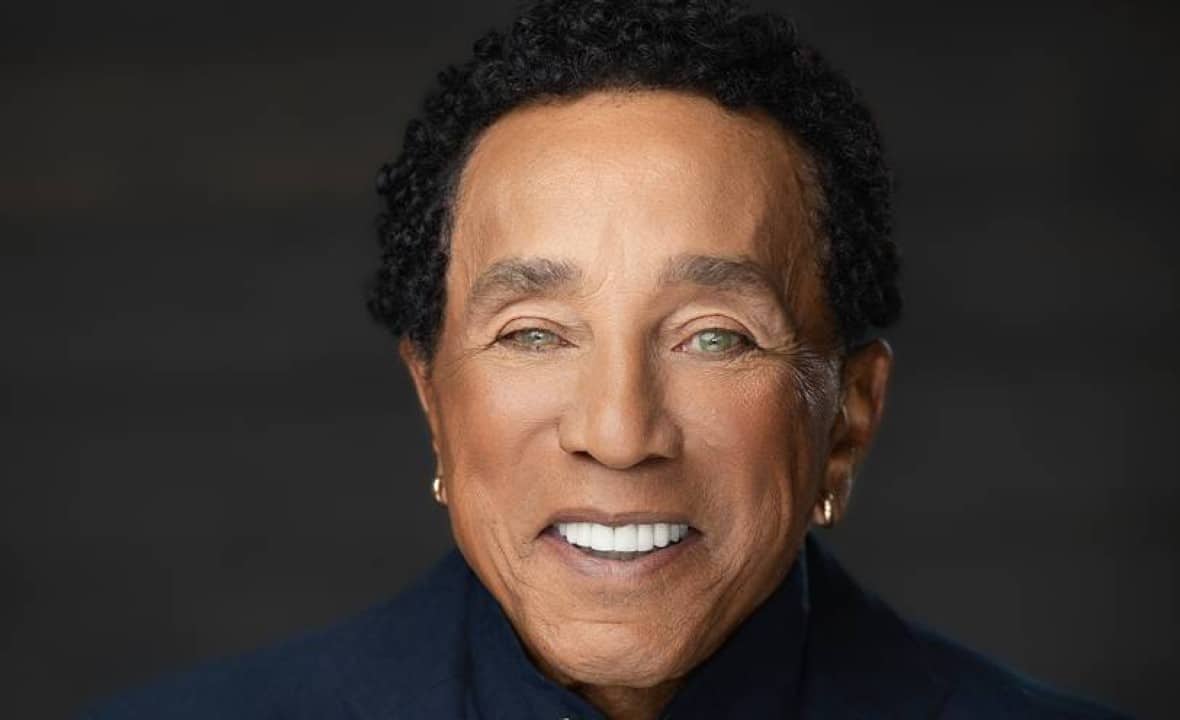
Four women who worked as housekeepers for Smokey Robinson, a Motown icon, have filed a lawsuit against the singer in Los Angeles, alleging years of sexual abuse at his residence. The accusations, detailed in a 27-page complaint, describe a pattern of predatory behavior that primarily occurred at the artist’s home in Chatsworth, California. The former employees, identified as Jane Does 1 to 4, are seeking damages of at least $50 million.
The allegations surfaced during a press conference where three of the women, wearing masks to protect their identities, shared their experiences. The fourth participated remotely, underscoring the severity of the accusations against the 85-year-old singer, known for classics like “My Girl” and “The Tracks of My Tears”.
The plaintiffs’ attorney, John Harris, highlighted the vulnerability of the workers, who faced precarious conditions:
- They were Hispanic women employed as housekeepers.
- They earned less than minimum wage.
- They feared retaliation or loss of income if they reported the abuses.
- Some faced insecurity due to their immigration status.
The lawsuit was filed on Tuesday, May 6, 2025, in Los Angeles County Superior Court, marking a significant moment for the former housekeepers who, according to their representatives, decided to break their silence after years of fear and embarrassment.
Details of the accusations against Robinson
The complaint outlines incidents that allegedly occurred over years, with specific details about Smokey Robinson’s conduct. One woman claims she endured at least 23 abuses between May 2014 and February 2020, often in areas of the house without security cameras. Another former employee reports 20 incidents over 12 years, starting in 2012, during which the singer would force her into his bedroom and perform a “ritual” of emerging from the bathroom naked or nearly naked, placing a towel on the bed before the acts.
Another housekeeper, who worked for 13 months, says she suffered seven abuses. In an attempt to stop Robinson’s advances, she reminded him of his marriage, but her pleas were ignored, according to the lawsuit. The fourth plaintiff, who also served as a personal assistant, cook, and hairdresser for Robinson’s wife, Frances, reports abuses dating back to 2007 in Las Vegas, and later in Bell Canyon and Chatsworth.
The accounts point to a consistent pattern. Robinson, according to the allegations, took advantage of moments when other housekeepers left the residence to approach the victims. He would lock the door, place a towel on the bed, and, ignoring protests, commit the abuses. The lawsuit notes that the singer never used a condom during the acts, increasing the risks to the victims.

Context of the workers
The four women shared vulnerabilities that made reporting difficult. They were Hispanic housekeepers, earning below minimum wage and, in some cases, concerned about their immigration status. Attorney John Harris emphasized that the fear of losing their jobs or facing public retaliation kept them silent for years.
Some of the plaintiffs worked at Robinson’s home simultaneously, but shame prevented them from sharing their experiences. When they finally decided to speak out, the lawsuit triggered what Harris described as an “avalanche of emotion.” The decision to file the suit came after a long period of distress, with the women seeking justice through significant compensation.
Involvement of Frances Robinson
In addition to Smokey Robinson, the lawsuit names Frances Robinson, the singer’s wife, as a defendant. The plaintiffs claim she contributed to a hostile work environment by frequently yelling at them and using ethnically pejorative language. One woman reports that when she refused Robinson’s advances, he threatened that Frances would be “mean” to her, intensifying psychological pressure.
Another plaintiff, identified as JD4, details an incident where Frances appeared to tolerate or ignore her husband’s behavior. These accusations suggest a domestic environment marked by intimidation, where the housekeepers felt trapped. The lawsuit alleges that Frances played an active role in maintaining abusive conditions, exacerbating the workers’ suffering.
Locations and frequency of incidents
The abuses, according to the lawsuit, took place at various Robinson properties, with a focus on his Chatsworth residence, a suburb northwest of Los Angeles. Other incidents allegedly occurred at a temporary home in Bell Canyon and a property in Las Vegas. The choice of locations without security cameras, such as bedrooms and private areas, made it difficult for the victims to obtain direct evidence.
The frequency of the abuses varied among the plaintiffs:
- One endured 23 incidents over nearly six years.
- Another faced 20 abuses over 12 years.
- A third reports seven abuses in 13 months.
- The fourth victim describes multiple incidents over more than a decade.
This repetition, according to the lawsuit, demonstrates a deliberate pattern of behavior by Robinson, who exploited his position of power over the housekeepers.
Initial reactions to the lawsuit
The announcement of the lawsuit drew significant attention in Los Angeles, with the press conference attracting journalists and onlookers. The three women who appeared in person, protected by masks, reinforced the seriousness of the accusations by sharing brief accounts of their experiences. The remote presence of the fourth plaintiff amplified the event’s impact, highlighting the difficulty of confronting a public figure like Robinson.
Representatives for the singer, whose real name is William Robinson Jr., did not immediately respond to media requests for comment. The absence of an official statement sparked speculation about how Robinson and his legal team will address the case. Meanwhile, the plaintiffs’ attorney, John Harris, reiterated that the $50 million figure reflects the severity of the harm suffered by the women.
Smokey Robinson’s career
Smokey Robinson is a legendary figure in American music, known for founding The Miracles in the 1950s and his solo career, which includes hits like “Cruisin’” and “Being With You.” He also served as a Motown Records executive, contributing to the success of artists like Stevie Wonder and The Temptations. In 1987, he was inducted into the Rock & Roll Hall of Fame, cementing his legacy as an R&B pioneer.
Born in Detroit, Michigan, Robinson built a career spanning over six decades, marked by awards and global recognition. His influence on soul and pop music is undeniable, with songs that continue to inspire new generations. However, the recent allegations cast a shadow over his reputation, raising questions about the behavior of public figures in private settings.
Financial and emotional toll on the plaintiffs
The former housekeepers faced significant losses after the incidents. Beyond the disruption of their already low incomes, they dealt with profound emotional trauma. The lawsuit highlights that fear of public retaliation and concerns about exposure of their identities hindered their ability to seek help.
For some, the worry about impacts on their immigration status added an extra layer of insecurity. The decision not to report to authorities immediately reflects the barriers faced by workers in vulnerable positions, who often lack resources to confront powerful employers. The lawsuit represents, for them, an attempt to reclaim dignity and seek reparations for the harm suffered.
Legal aspects of the case
The lawsuit was filed in Los Angeles County Superior Court, a jurisdiction known for handling high-profile cases involving celebrities. The 27-page complaint details the accusations with precision, including dates, locations, and descriptions of the incidents. The choice to identify the plaintiffs as Jane Does aims to protect their identities, a common practice in sexual abuse cases.
The requested $50 million reflects not only the physical and emotional damages but also the loss of income and humiliation endured by the women. Attorney John Harris stated that, while no amount can fully compensate for the suffering, the figure is justified by the severity of Robinson’s actions. The inclusion of Frances Robinson as a defendant adds complexity to the case, suggesting that the domestic environment contributed to the abuses.
Silence and stigma among the victims
The lawsuit reveals the weight of the silence the plaintiffs carried for years. The shame of sharing their experiences, even with colleagues working in the same household, created emotional isolation. Some only disclosed the abuses after leaving the job, when they felt safe to speak.
The plaintiffs’ attorney emphasized that the decision to file the lawsuit was an emotional milestone:
- It broke the cycle of fear and embarrassment.
- It allowed the women to unite in pursuit of justice.
- It encouraged other potential victims to consider reporting.
- It underscored the importance of supporting workers in vulnerable positions.
This shift in perspective, according to Harris, was crucial for the women to overcome the initial trauma and seek reparations through the judicial system.
Context of the Chatsworth residence
Smokey Robinson’s Chatsworth home, where most of the incidents allegedly occurred, is a spacious property in a quiet Los Angeles neighborhood. Its location, away from the urban center, provided privacy for the singer but also isolated the housekeepers, making it difficult to seek outside help. The absence of cameras in certain areas of the house, such as bedrooms and bathrooms, is a central point of the lawsuit, as it facilitated the abuses without leaving evidence.
Other mentioned properties, such as the temporary home in Bell Canyon and the Las Vegas residence, reinforce Robinson’s mobility and the continuity of his behavior across different locations. These geographic details help map the scope of the allegations, which span nearly two decades.
Public debate in Los Angeles
The news of the lawsuit sparked varied reactions in Los Angeles, a city accustomed to celebrity scandals. While some fans expressed shock and disbelief, others emphasized the importance of listening to the victims, regardless of the accused’s reputation. The press conference, with the plaintiffs’ presence, intensified the debate about power abuse and the working conditions of domestic workers.
Local organizations supporting immigrant workers issued statements highlighting the need to protect women in precarious jobs. The case’s visibility also reignited discussions about the #MeToo movement, which since 2017 has encouraged victims of sexual abuse to report their aggressors, even in cases involving public figures.
History of similar allegations in the entertainment industry
Sexual abuse cases involving celebrities are not new in Los Angeles. In recent years, figures like Harvey Weinstein and R. Kelly faced similar accusations, resulting in convictions and significant changes in how the entertainment industry handles misconduct allegations. The lawsuit against Robinson fits into this context, highlighting the vulnerability of workers in private settings.
Unlike previous cases, which often involved actresses or entertainment professionals, Robinson’s accusers are domestic workers, broadening the debate to include low-income workers. The lawsuit may inspire other victims in similar situations to seek justice, particularly in professions with little visibility.
Next steps in the lawsuit
The case now moves to the next phases in Los Angeles County Superior Court. Smokey Robinson’s defense is expected to submit a formal response to the allegations, detailing their stance on the incidents. The lack of initial comments from the singer suggests that his legal team is evaluating the best strategy to handle the case.
Meanwhile, the plaintiffs, represented by John Harris, plan to continue their legal battle, seeking not only compensation but also exposure of Robinson’s behavior. The lawsuit, which has already garnered significant media coverage, is likely to remain in the spotlight in the coming months.





